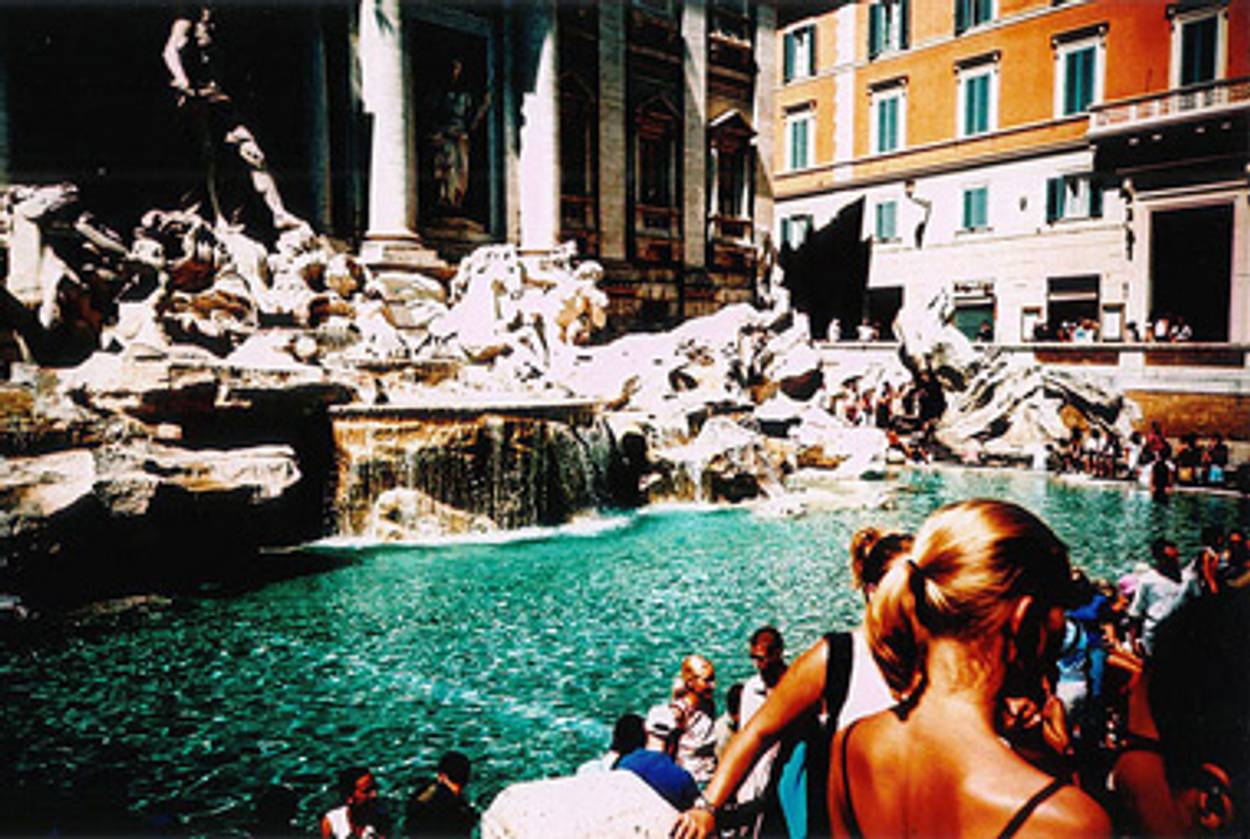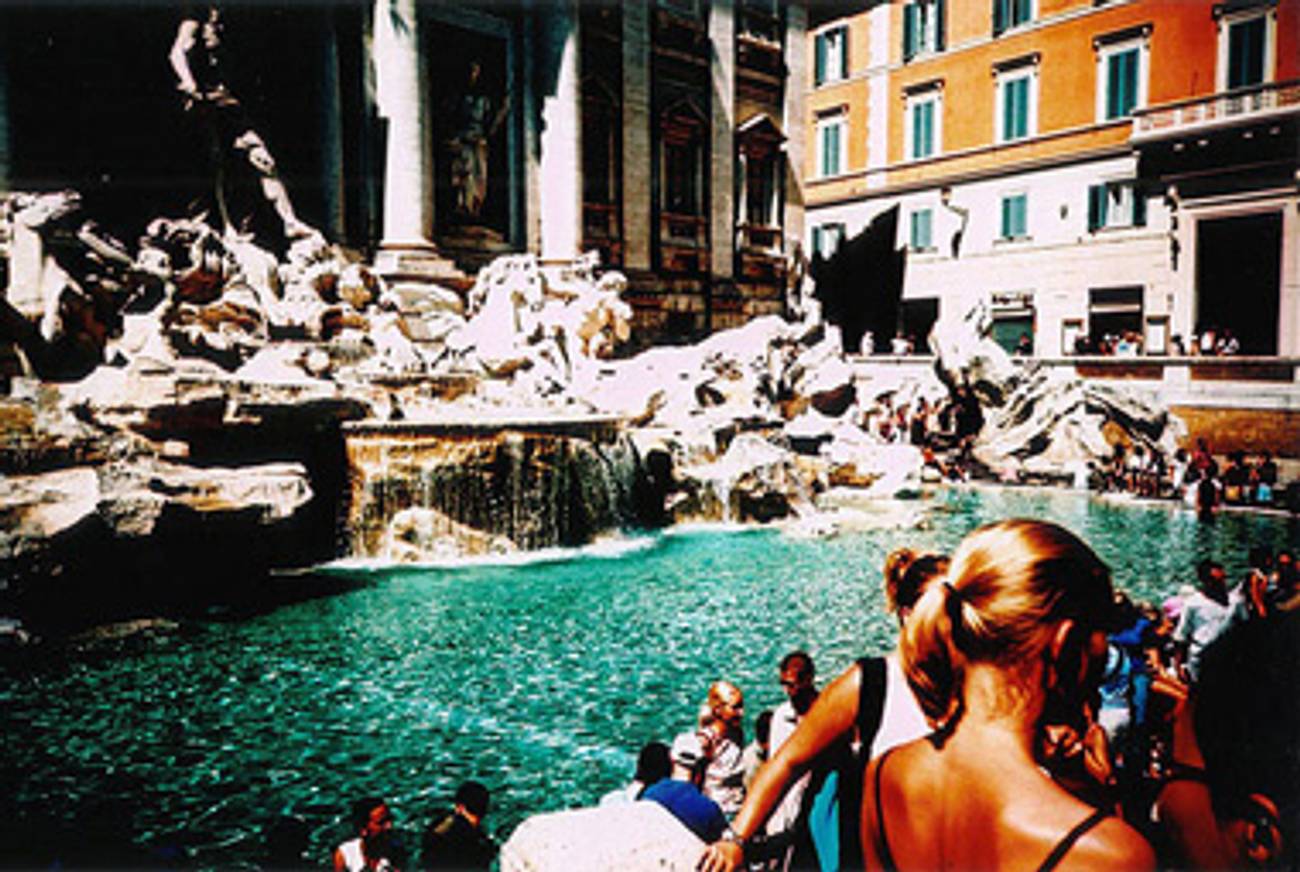La Dolce Vita
The Free World, David Bezmozgis’ novel about a family of Soviet émigrés stuck in Rome waiting for visas to North America, explores the joys—and costs—of newfound liberty




When David Bezmozgis published Natasha, his highly acclaimed collection of short stories, in 2004, he brought to the experience of Soviet Jewish émigrés something of the sharp-eyed, ruthless comedy of the early Philip Roth. Bezmozgis was born in Riga in 1973 and moved with his family to Toronto in 1980; by giving the same trajectory to the Bermans, the family at the center of Natasha, he left no doubt that he was writing at least quasi-autobiographically. And viewed from the perspective of a bright, unillusioned child, the émigré experience became a source of rich ironies.
Bezmozgis showed the Berman children mastering the English language and expressing their own resentment and powerlessness by trying out playground insults like “shithead” and “gaylord” on a beloved dog. He showed Roman Berman, a former Olympic trainer forced to start over as a humble massage therapist, playing up to rich Canadian Jews by bemoaning Soviet anti-Semitism. And in “An Animal to the Memory,” a worthy successor to Roth’s “The Conversion of the Jews,” Bezmozgis wrote one of the best accounts I’ve ever read of the way Jewish children both resist and submit to the legacy of the Holocaust.
Seven years later, Bezmozgis is finally back with a novel, The Free World (Farrar Straus Giroux, $26), and once again his focus is on a Soviet Jewish family from Riga. Yet The Free World is a very different book from Natasha, for both good and ill. In moving from the short story to the novel, Bezmozgis has become a more deliberate and objective writer; he has also become a more cautious and dutiful one. One sign of this change is that the Krasnansky family, whose misadventures form the subject of the new book, includes no character whose biography parallels the author’s. Instead of telling this family’s story from the inside, with a child’s intimacy and unfairness, Bezmozgis wants to tell it from the outside, to do it a more adult kind of justice.
This is not to say that Bezmozgis has started to idealize the Soviet Jewish émigrés. In fact, the best way to read The Free World might be as a subversive companion to Gal Beckerman’s magisterial history of the Soviet Jewish emigration, When They Come for Us, We’ll Be Gone, published last year. Where Beckerman tells the official, public history of that movement—its ideals, protests, organizations, heroes, and villains—Bezmozgis avails himself of literature’s privilege to tell the private, unofficial, often unheroic truth.
The Krasnanskys, like the large majority of Jews who left the USSR in the 1970s and 1980s, are not committed refuseniks but ordinary people in search of a better life. And Bezmozgis captures them at the moment of maximum disorientation: The story takes place over a few months in 1978, while the family waits in Rome for the immigration permits that will allow them to go to Canada. This is not yet “the free world,” but a kind of limbo, offering all the temptations of freedom with none of the rootedness or responsibility. Marriages, in particular, suffer under the strain. “Incidents began as early as Vienna,” Bezmozgis writes, “with tales of wives running wild, abandoning their husbands. And in Ostia and Ladispoli, there were the common occurrences of one man leaving his wife for that of a friend. This was then typically followed by threats and imprecations and the obligatory loopy fistight—the whole sorry spectacle played out before somebody’s distraught five-year-old.” Such couples, he concludes, “remained together just long enough to get to the free world—whose freedom they’d defined in no small measure as freedom from each other.”
The novel is built, one might say, around this distinction between “freedom from” and “freedom to”—what the philosopher Isaiah Berlin called negative and positive freedom. For Alec Krasnansky, a charming 26-year-old whose fecklessness makes him seem younger, paradise would be freedom from obligation:
[T]he only thing Alec detested more than being ordered around was having to order someone else around. Basically, he was of the opinion that the world would be a far more interesting and hospitable place if everyone—genius and idiot alike—was allowed to bumble along as he pleased. ‘More freedom to bumble’ neatly described his motive for leaving the Soviet Union.
This is Alec’s vision of the free world, and it sounds like the kind of thing that would appeal to the author of Natasha, and to most literary, liberal readers. Certainly, Alec starts out as the novel’s comic hero. On the first page, we see him fantasizing about picking up a couple of pretty American tourists, confident that he is irresistible to women: “In his presence, they often became exaggerated versions of themselves. The maternal ones became more maternal, the crude ones became cruder, the shy ones shyer.” Alec was persuasive enough, at least, to convince his non-Jewish girlfriend, Polina, to marry him and leave the USSR—though we learn, from her letters to her sister back home, that she is anything but sure about her decision.
But as The Free World develops, we start to realize that Bezmozgis is far from indulgent to Alec’s brand of adolescent, “bumbling” freedom. It looks especially dubious in contrast to the stern, revolutionary freedom that Alec’s father, Samuil, devoted his life to achieving. Samuil, a World War II veteran and a high-ranking Party man, never wanted to leave the USSR in the first place; but after Alec and his brother Karl applied for exit visas, Samuil was tainted by association. In disgrace, he considered suicide, but finally agreed to join the family in emigration—or, as he sees it, in exile. Even as he is surrounded by Jewish émigrés, he holds himself apart: “Samuil thought, as he had time and again, that the Soviets had wisely managed to rid themselves of the least desirable elements. In his long life he had never had the misfortune of being cast among such a lot of rude and unpleasant people.”
The Free World chronicles an interlude in these characters’ lives, and partly for this reason it never develops a consistent narrative momentum. Bezmozgis tries to move the plot forward by thrusting various Krasnanskys into tragicomic situations: There are illicit affairs, bureaucratic snafus, even a brush with organized crime that leads to a climactic scene of violence. But his heart never seems to be in these formulaic devices.
Instead, Bezmozgis is at his best when offering concrete historical details, trying to capture the way it really was for these emigrants in this time and place. He shows the Krasnanskys trying to navigate among unscrupulous hotel managers, importunate Lubavitcher missionaries, and high-handed consular officials. Above all, we see the randomness and precariousness of the decisions that will shape the Krasnanskys’ future. “They lived in a fog of doubt and apprehension,” Bezmozgis writes, and when someone casually suggests they go to Canada, they make the decision in a 10-minute colloquy in a stairwell. “What do we know about it?” one asks, and another replies, “You watched the Olympics. You liked what you saw of Montreal.”
This kind of close, authentic observation is one of the best reasons to read The Free World. The other is the surprising way that Bezmozgis develops his own and the reader’s sympathy with Samuil, the Soviet true believer. In a world that has experienced the failure of Communism, Samuil is a melancholy spokesman for the old generation of Eastern European Jews who believed passionately that the Revolution would redeem them. More and more, his memories and reflections dominate the novel. He remembers the words of the “Red Haggadah,” with which young Communists would mock and celebrate Passover: “Twenty-five years ago the working classes of Russia with the help of peasants searched for chometz in their land. They cleaned away all the traces of landowners and bourgeois bosses in the country and took power into their own hands. … This year a revolution in Russia; next year—a world revolution!”
It is an ironic echo of the languid remark made earlier in the novel by another emigrant: “Next year in Los Angeles.” The Samuils of Jewish history are seldom remembered these days, and even more seldom with sympathy. By contrasting their idealism and sternness with the aimless freedom of the younger generation, Bezmozgis pays nostalgic tribute to a world that history, and his own family, left behind.
Adam Kirsch is a poet and literary critic, whose books include The People and the Books: 18 Classics of Jewish Literature.
Adam Kirsch is a poet and literary critic, whose books include The People and the Books: 18 Classics of Jewish Literature.